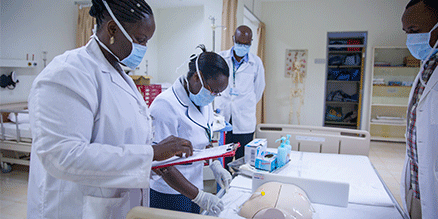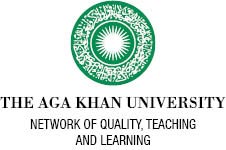As an integral part of the Network of Quality, Teaching and Learning, the Quality Assurance and Improvement (QAI) Unit aim is to continually improve upon and promote the highest quality academic programmes through regular periodic reviews. QAI team members provide support, guidance, training and capacity building to faculty and staff for the implementation of the University-wide Academic Quality Framework.
SoNAM East Africa (EA) recently took part in a Self Assessment Review (SAR). In this article Diana Kassaman, Senior Instructor for AKU SoNAM EA shares her experience, the challenges faced and lessons learnt from the SAR.
Engaging in a Self-Assessment Review (SAR)
When we were first informed that we needed to engage in a self -assessment review, most of the faculty were anxious. Initially we thought that this was focused on an individual’s capacity to teach at the university level. This misconception was clarified when Dr Tashmin Khamis, Vice Provost, Quality, Teaching and Learning (QTL) trained us and clearly outlined the activities involved in a self-assessment review. Anxiety still existed even as QTL trained us because the faculty had not been involved in the previous SAR which was conducted when the School was running only one program (RN-BSCN) in a small facility which had only two classrooms and a library. At the time of the SAR training by Dr.Tashmin, , the RN-BScM program was ongoing and close to graduating its first cohort.
During the training for this SAR, Dr Khamis explained the core documents, simplified the terminology involved and gave relevant examples from the previous SAR report. We gained a new understanding of the AKU Quality Framework (AQF) and the Inter-University Council for East Africa (IUCEA); that the self-assessment exercise was about ensuring the programs we offered met the quality threshold. A quote during the training by Dr Khamis that was particularly memorable for me was:
“Embrace quality or cease to exist”.
Post training, faculty were divided into two groups, one reviewing the BScN and the other reviewing the BScM programme. I was assigned to the BScM team and during our first meeting, we agreed to share out the tasks and meet weekly to report our progress. Each member was allocated five cells to work on and we had an administrative staff member who was responsible for availing the pieces of evidence requested. Additionally, we had a student in the group whose input was crucial since she was a direct receipient and beneficiary of the programme.
Initially an uphill task, after reading and internalizing the documents, the process became enjoyable. Members looked forward to the meetings in which we all acquired new knowledge. For newer faculty, the sessions served as good orientation as we read policies that they had not had the chance to before. Faculty benefitted as the exercise offered an opportunity to interrogate  current practices. We employed an evidence-based approach and realized that sources could be applied to more than one area. Evidence, in this case, refers to any write-up, article, video or structure that supported us in giving ourselves a fair and accurate rating. This rating in the critical analysis formed the basis for our improvement. From the SAR report of the BScN program, we realized that whereas some gaps had been closed, some still needed action and closure. An example was the need to benchmark with other institutions.
current practices. We employed an evidence-based approach and realized that sources could be applied to more than one area. Evidence, in this case, refers to any write-up, article, video or structure that supported us in giving ourselves a fair and accurate rating. This rating in the critical analysis formed the basis for our improvement. From the SAR report of the BScN program, we realized that whereas some gaps had been closed, some still needed action and closure. An example was the need to benchmark with other institutions.
This self-evaluation provided a distinct learning opportunity for faculty, and our group had lots of fun as members shared their experiences of gathering evidence.
Challenges Faced
- Initially, most of us did not clearly understand the themes and areas, but this later became clear after our first meeting.
- The work was immense amidst the COVID-19 challenge and we worried about how we would continue work collabratively.
- The BScM program was new; we had not graduated any students
Lessons learnt
- Gathering evidence is labour-intensive and can take longer than planned
- It takes group effort to correctly interpret some pieces of evidence
- Objectively rating the program is important, be careful about over or underrating
- Meeting online worked even better for the members, there was adequate time and nobody was rushing to leave
Overall, the SAR exercise helped us to understand the rationale behind what we do with the ultimate aim of improving the student experience and learning outcomes.
Information about the Author: Diana Kassaman is a Senior instructor at the Aga Khan University School of Nursing and Midwifery based in Nairobi. She teaches Advanced Concepts in Nursing, Critical thinking and Academic Writing, Leadership & Management and Teaching & Learning. A fourth-year PhD candidate at the University of Salford with research interests in breast cancer health literacy.


